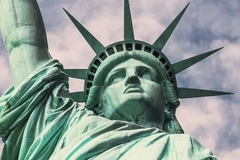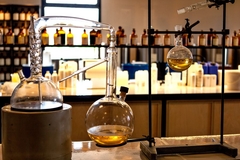Canada moves forward with “historic” measures to ban animal testing in cosmetics

24 Apr 2023 --- The Canadian government has laid out new measures in its Budget Implementation Act that will prohibit testing cosmetics on animals in Canada. Aside from red tagging products backed by new animal testing data to establish the product’s safety, measures will also ban false or misleading labeling pertaining to the practice.
This cruelty free legislation is set to pass this summer and is welcomed by both animal rights activists and cosmetics industry representatives.
“Industry and animal protection advocates have worked together over the last several years to advance a cosmetics animal testing ban in Canada,” remarks Darren Praznik, president and CEO at Cosmetics Alliance Canada.
“Since this issue was first raised in Parliament through a Private Member’s Bill in the Senate in 2015, our group has met frequently to build a collaborative relationship and to align on the principles with Health Canada while ensuring the ban works within the Canadian regulatory framework,” he details.
“We are very pleased to see the government bring forward this long overdue legislation.”
 Animal protection advocates including Cosmetics Alliance Canada, Lush Cosmetics and The Body Shop have been working closely with the Canadian government for several years to advance the legislation.
Animal protection advocates including Cosmetics Alliance Canada, Lush Cosmetics and The Body Shop have been working closely with the Canadian government for several years to advance the legislation.
After the legislation comes into force, it will be prohibited for any brand to make a claim on a cosmetic label or advertisement that suggests the product was not tested on animals unless they have presented evidence that no animal testing occurred after the ban.
Tenets of animal welfare
According to Canada’s new measures, it is prohibited to conduct a test on animals that may cause them physical or mental pain, suffering or injury. This prohibition applies when the test is conducted for the purpose of meeting a local commercial requirement related to cosmetic safety or under the laws of a foreign state.
However, the prohibition does not apply in certain circumstances, including if a cosmetics manufacturer credits safety data that has been published by the Government of Canada. Also, the ban is not enforced when data is sourced from publicly available results of a study that is not sponsored by the manufacturer of the cosmetic.
Other exceptions include if the data is from a test conducted before the prohibition was enforced or in the case that the cosmetic was sold in Canada before this new ban was enforced.
“This is a unifying issue that has earned cross-party support in Canada and will match the progress we are seeing around the world as consumers, companies, regulators and advocates come together to achieve a common goal of ensuring that animals won’t suffer for the sake of cosmetics anywhere,” comments Monica Engebretson, head of public affairs for North America at Cruelty Free International.
Industry voices support
From within the industry, animal protection advocates including Cosmetics Alliance Canada, Lush Cosmetics and The Body Shop have been working closely with the Canadian government for several years to advance the legislation.
“The Body Shop applauds Minister Duclos and Health Canada for their work in bringing forth this legislation,” says Hilary Lloyd, the company’s VP of marketing and corporate responsibility in North America.
“We’re celebrating this milestone and reflecting on the passionate hard work from our retail teams and activist customers that delivered over 625,000 signatures to Parliament Hill in 2018 asking to end cosmetic animal testing,” she remarks.
“An important reminder that businesses have a responsibility in being a force for good. We encourage other governments around the world to follow suit.”
 According to Canada’s new measures, it is prohibited to conduct a test on animals that may cause them physical or mental pain, suffering or injury.Previously, Unilever openly warned that the progress on banning animal testing for good was experiencing a “backward slide” in Europe. The company flagged that the European Chemicals Agency allowed significant loopholes for new animal tests.
According to Canada’s new measures, it is prohibited to conduct a test on animals that may cause them physical or mental pain, suffering or injury.Previously, Unilever openly warned that the progress on banning animal testing for good was experiencing a “backward slide” in Europe. The company flagged that the European Chemicals Agency allowed significant loopholes for new animal tests.
International efforts to curb animal testing
Globally, animal testing remains a salient topic among consumers and industry stakeholders. Last December, New York joined the list of US states that ban animal testing for cosmetics.
This year, Brazil, the largest beauty market in South America, partially banned animal testing for personal hygiene products, cosmetics and perfumes.
Among other recent developments, Cruelty Free International went head-to-head with the UK Home Office over animal testing in cosmetics at the Royal Courts of Justice in London.
In Europe, an EU-wide petition to ban animal testing closed in September 2022, with 1,413,383 EU citizens signing the Save Cruelty Free Cosmetics/End Animal Testing European Citizens’ Initiative, demanding an end to the practice.
In part one of a recent series on animal testing, PersonalCareInsights revealed that loopholes in EU regulations mean that consumers often unknowingly purchase products that have been tested on animals.
By Benjamin Ferrer













